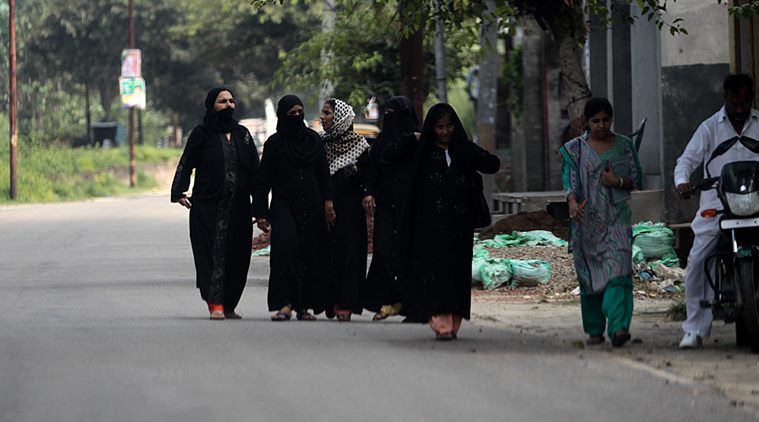With Saviours Like These
Those ‘rescuing’ Muslim women are also the ones undermining their agency.

During and in the run-up to the Uttar Pradesh elections in 2016-17, under the garb of gender justice, the triple talaq issue was extensively used by the star campaigners of the BJP.
Is feminism being co-opted by the right-wing forces? Do Muslim women need saving? Through behen beti bacho and anti-Romeo squads, do Hindu women need protection from Muslim men? These are some of the questions that need to be answered in the wake of the Law Commission’s renewed debate on Muslim Personal Law reform, started by the latest round of consultations for a Uniform Civil Code (UCC) late last month.
In recent years, it has been noted that the direction of political discourse — which includes judicial pronouncements, civil society activism, government policy and the media debate — has veered towards selectively focusing on issues of Muslim women and the need to “rescue” them. Further, when it comes to the construction of the cause for these ills, the discourse has narrowly focused on religion — Islam or Islamic law — as being the source of all problems related to Muslim women and on Muslim men as being the sole perpetrators. A brief purview of the political discourse, especially under the present government, shows that gender equality in cultural and religious terms is represented as a problem already solved for all women, except Muslim women. This is a problematic account of the state of gender justice in the country on several counts.
First, Muslim women are not a homogeneous lot. Today, in India, Muslim women also belong to the most persecuted minority, whose right to citizenship, life, livelihood and other basic socio-economic rights are constantly under threat from an extremist form of majoritarian nationalism. However, this oppression that they face, along with Muslim men, is never taken into account when reflecting upon their gender-oppressed status.
Second, in the political discourse, culture or religion is projected as the sole reason for their backwardness. Here too, the discourse projects that only Muslim women need to be saved from oppressive personal laws and patriarchal Muslim men. In the same discourse, there is a normalisation of violence against Muslim men and of sexual violence against all Indian women. For instance, the same discourse calls for the dilution of sections of the IPC, which resist the recognition of marital rape as a crime.
During and in the run-up to the Uttar Pradesh elections in 2016-17, under the garb of gender justice, the triple talaq issue was extensively used by the star campaigners of the BJP. After the recent bypoll losses, it seems the need for Muslim Personal Law to project the myth of Muslim “otherness” has returned. The UCC seems to have become a time-tested electoral tool to polarise the masses. It is instructive to bear in mind that the right-wing forces originally gained ascendancy to political centre stage after the communal polarisation caused by the Shah Bano debate in the mid-1980s. The demand for a UCC has figured in the BJP manifesto ever since. Noted legal scholar and activist, Flavia Agnes, has also made a similar observation, adding that “…Until then, and more particularly in the 1950s when the debate around the Hindu Code Bill was raging, it was the Hindu law that was projected as ‘archaic and anti-women’”.
Illustrative of some of the dark sides of such a skewed pursuit of gender justice is the much-publicised Hadiya case. This case involved the conversion and later marriage of an adult Hindu girl to Islam. There was a concerted effort at multiple levels of the political, judicial and social spectrum to deny the woman her agency. On one hand, the so-called harbingers of gender justice are weaving the myth of “love jihad” in order to oppress and control Hindu women, while, on the other, they are pretending to be saviours of Muslim women.
This selective appropriation of feminism needs to be challenged by the women’s movement, as it is rendering Indian women more vulnerable to violence and patriarchal control. Communal polarisation under the garb of gender justice is a time-tested formula used by the ruling dispensation — the latest efforts by the Law Commission to reform Muslim Personal Law needs to be viewed as a part of this agenda, rather than a step towards achieving genuine gender justice.
The writer is assistant professor at the Centre for Women’s Studies, Aligarh Muslim University
For all the latest Opinion News, download Indian Express App







































No hay comentarios:
Publicar un comentario